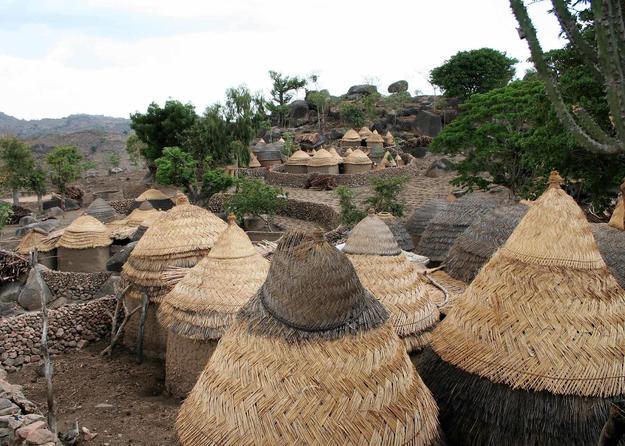5 Unique Cultural Heritage Sites to Explore in Nigeria

Nigeria is a country rich in cultural diversity, history, and tradition, boasting a multitude of heritage sites that reflect its vibrant past and cultural richness. From ancient kingdoms to colonial architecture, these sites offer a glimpse into the country’s diverse ethnic groups and their unique customs. Here are five unique cultural heritage sites in Nigeria that every traveler should explore.
1. Aso Rock and the Nigerian Presidential Complex, Abuja
Aso Rock, a prominent 400-meter (1,200-foot) monolith, serves as a natural backdrop to Nigeria’s capital city, Abuja. This iconic rock is not just a stunning natural feature; it also houses the Nigerian Presidential Complex, where the President’s office is located. The complex symbolizes Nigeria’s governance and unity, making it a vital site for both history and politics. Visitors can explore the architectural grandeur of the complex from the outside, capturing photos of the impressive structure against the backdrop of Aso Rock.
Highlights:
- Iconic monolith with significant political importance.
- The Presidential Complex showcases modern Nigerian architecture.
- Opportunities for photography and sightseeing in the capital.
2. Olumo Rock, Abeokuta
Olumo Rock is a natural rock formation located in Abeokuta, Ogun State. This historic site has immense cultural significance, as it served as a fortress for the Egba people during the inter-tribal wars of the 19th century. The rock stands at 137 meters (449 feet) and offers breathtaking views of the surrounding city and landscape. Visitors can climb to the top via a series of steps or take an elevator, learning about the history and folklore associated with the rock from local guides.
Highlights:
- Historical significance as a fortress during the Egba wars.
- Scenic views of Abeokuta from the summit.
- Cultural festivals often held at the site, showcasing local traditions.
3. The Sukur Cultural Landscape, Adamawa State
The Sukur Cultural Landscape is a UNESCO World Heritage Site recognized for its historical and cultural significance. It is home to the Sukur people, who have maintained their traditional way of life for centuries. The site features terraced fields, traditional houses, and the remnants of an ancient palace. The landscape reflects the ingenuity of the Sukur people in adapting to their environment and showcases their rich cultural practices, including festivals and rituals that attract visitors seeking an authentic experience.
Highlights:
- UNESCO World Heritage Site highlighting the Sukur people’s culture.
- Unique terraced farming system and traditional architecture.
- Opportunities to engage with the local community and experience their traditions.
4. The Ancient City of Kano
Kano is one of the oldest cities in Nigeria, with a rich history that dates back over a thousand years. The ancient city is known for its well-preserved structures, including the ancient city walls, the Gidan Makama Museum, and the famous Kurmi Market. The city was once a major trading hub and is steeped in Islamic history, evident in its architecture and culture. Visitors can explore the vibrant markets, learn about traditional crafts, and appreciate the architectural beauty of mosques and ancient buildings.
Highlights:
- Rich history as a significant trading center in West Africa.
- Well-preserved ancient structures and museums.
- Vibrant cultural scene with traditional crafts and markets.
5. Awhum Waterfall and Monastery, Enugu State
Awhum Waterfall, located near a Benedictine monastery, is not only a natural wonder but also a cultural site of significance. The waterfall, cascading from a height of about 30 meters (98 feet), is considered sacred by the local community. It is believed to possess healing properties, attracting visitors for both its beauty and spiritual significance. The nearby monastery offers a serene environment for reflection and exploration of monastic life, making it a unique destination for those seeking both natural beauty and cultural enrichment.
Highlights:
- Scenic waterfall with spiritual significance and local legends.
- Proximity to a peaceful Benedictine monastery.
- Opportunities for hiking, picnicking, and spiritual reflection.
Nigeria’s cultural heritage is a tapestry woven with history, tradition, and natural beauty. From the majestic Aso Rock in Abuja to the serene Awhum Waterfall in Enugu, these sites offer unique experiences that reflect the country’s diverse cultures. Exploring these heritage sites not only enriches one’s understanding of Nigeria’s past but also highlights the enduring spirit of its people. Whether you are a history buff, an adventure seeker, or a cultural enthusiast, Nigeria’s heritage sites promise to captivate and inspire.




